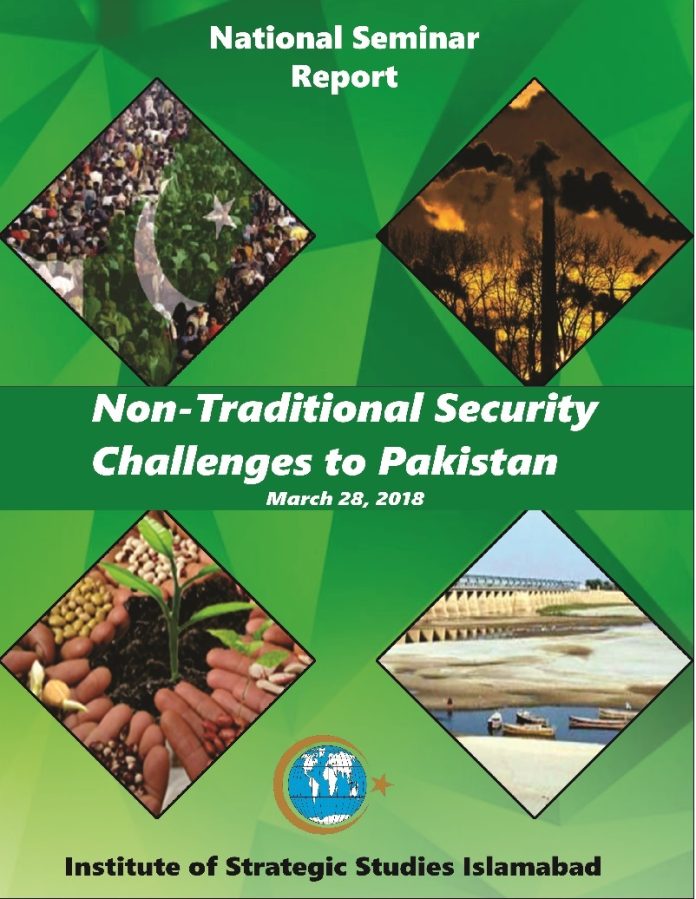CONCEPT NOTE OF THE SEMINAR
In the post-Cold War era, the term ‘National Security’ has acquired broader connotations. In the 21st century, ‘National Security’ extends beyond relying simply on hard power means. It includes non-traditional security challenges in order to ensure comprehensive national security.
Pakistan, for quite some time has also been facing a host of non-traditional security challenges that have seriously impacted its development, growth, economic progress, as well as political stability. These non-traditional security challenges including environmental degradation, food and water scarcity and unprecedented population explosion merit urgent attention before they spiral out of control, posing a threat to the survival and development of Pakistan.
The Institute of Strategic Studies Islamabad (ISSI) considers that Pakistan’s regional and internal security environment is complex and complicated. In the given context, there is a need to identify these non-traditional challenges along with the traditional challenges and also develop a strategy that would enable Pakistan’s policy makers and opinion leaders to optimally confront and neutralize these challenges.
The seminar brought together a core group of experts and officials in order to put together concrete recommendations in this regard. The recommendations at the end of this report have been suggested by the experts as some of the possible ways to help policy makers formulate a national level strategic framework for Pakistan to timely deal with these non-traditional security threats.
Pakistan’s state institutions have largely remained focused on maintaining stable law and order situation amidst fog of unprecedented internal and external threats. Moreover, like other South Asian countries, Pakistan has also been facing a number of non-traditional security challenges that have seriously impacted its development, growth, economic and political stability. Pakistan has been identified as one of the most vulnerable countries to environmental degradation, especially when faced with the adverse implications of global climate change.
In Pakistan, low-probability and high-impact events such as earthquakes, floods, droughts, storms and cyclones have been increasing in frequency, inflicting unbearable human and financial losses. The case in point being the earthquake of 2005 that caused approximately 0.1 million deaths, made 3.5 million people homeless and incurred $5.2 billion financial losses; and the floods of 2010 that wreaked havoc affecting 20 million people. Climate change and variations in precipitation patterns also affect agricultural production, exacerbating food shortages. Food scarcity is an issue that is being predicted to be one of the most important problems that will be faced by the states in the future. Dwindling fresh water resources has led many scholars to speculate inter-state ‘water-wars’ in not too distant future.
















